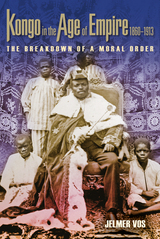
Vos underlines that Kongo's incorporation in the European state system also had tragic consequences, including the undermining of local African structures of authority—on which the colonial system actually depended. Kongo in the Age of Empire carefully documents the involvement of Kongo's royal court in the exercise of Portuguese rule in northern Angola and the ways that Kongo citizens experienced colonial rule as an increasingly illegitimate extension of royal power.
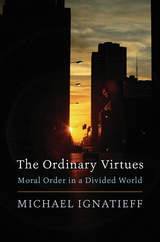
Winner of the Zócalo Book Prize
A New York Times Book Review Editors’ Choice
“Combines powerful moral arguments with superb storytelling.”
—New Statesman
What moral values do we hold in common? As globalization draws us together economically, are the things we value converging or diverging? These twin questions led Michael Ignatieff to embark on a three-year, eight-nation journey in search of an answer. What we share, he found, are what he calls “ordinary virtues”: tolerance, forgiveness, trust, and resilience. When conflicts break out, these virtues are easily exploited by the politics of fear and exclusion, reserved for one’s own group but denied to others. Yet these ordinary virtues are the key to healing and reconciliation on both a local and global scale.
“Makes for illuminating reading.”
—Simon Winchester, New York Review of Books
“Engaging, articulate and richly descriptive… Ignatieff’s deft histories, vivid sketches and fascinating interviews are the soul of this important book.”
—Times Literary Supplement
“Deserves praise for wrestling with the devolution of our moral worlds over recent decades.”
—Los Angeles Review of Books
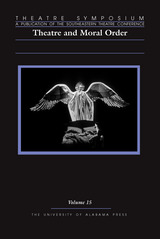
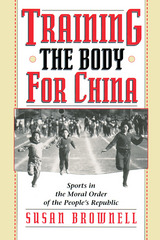
Training the Body for China is the first book on Chinese sports based on extended fieldwork by a Westerner. Brownell introduces the notion of "body culture" to analyze Olympic sports as one element in a whole set of Chinese body practices: the "old people's disco dancing" craze, the new popularity of bodybuilding (following reluctant official acceptance of the bikini), mass calisthenics, martial arts, military discipline, and more.
Translating official and dissident materials into English for the first time and drawing on performance theory and histories of the body, Brownell uses the culture of the body as a focal point to explore the tensions between local and global organizations, the traditional and the modern, men and women. Her intimate knowledge of Chinese social and cultural life and her wide range of historic examples make Training the Body for China a unique illustration of how gender, the body, and the nation are interlinked in Chinese culture.
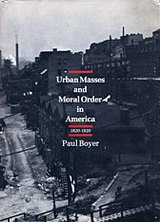
For over a century, dark visions of moral collapse and social disintegration in American cities spurred an anxious middle class to search for ways to restore order. In this important book, Paul Boyer explores the links between the urban reforms of the Progressive era and the long efforts of prior generations to tame the cities. He integrates the ideologies of urban crusades with an examination of the careers and the mentalities of a group of vigorous activists, including Lyman Beecher; the pioneers of the tract societies and Sunday schools; Charles Loring Brace of the Children's Aid Society; Josephine Shaw Lowell of the Charity Organization movement; the father of American playgrounds, Joseph Lee; and the eloquent city planner Daniel Hudson Burnham.
Boyer describes the early attempts of Jacksonian evangelicals to recreate in the city the social equivalent of the morally homogeneous village; he also discusses later strategies that tried to exert a moral influence on urban immigrant families by voluntarist effort, including, for instance, the Charity Organizations' "friendly visitors." By the 1890s there had developed two sharply divergent trends in thinking about urban planning and social control: the bleak assessment that led to coercive strategies and the hopeful evaluation that emphasized the importance of environmental betterment as a means of urban moral control.
READERS
Browse our collection.
PUBLISHERS
See BiblioVault's publisher services.
STUDENT SERVICES
Files for college accessibility offices.
UChicago Accessibility Resources
home | accessibility | search | about | contact us
BiblioVault ® 2001 - 2024
The University of Chicago Press









